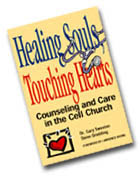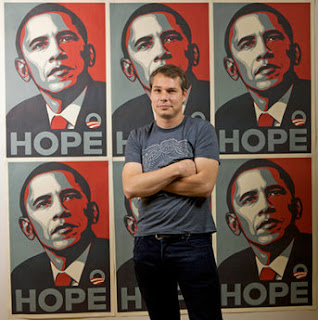Of the books on leadership there is no end. Any bookstore in the land has a multitude of such books by authors famous and infamous, successful and unsuccessful, rich and poor, articulate and non understandable, general and specific. I will not attempt to compete with those who have laws a plenty or those with platitudes about how Jesus led or Lincoln won the war.
One key to my ideas is this:
Jesus you are not!
Jesus you will never, ever be!
In fact, you are not even Lincoln regardless of whether you were born in a log cabin and split wood for a living. Growing a beard is not the same as being born with Lincoln's wit, IQ and wisdom.
My ideas come from principles I learned from successful practitioners who passed on their ideas to me. They had walked the talk and I saw them in action, plus I tried their ideas and found they worked.
Second, I dislike the term "Leadership" and prefer influence. have studied and led small groups and strongly believe that every member has a leadership/influence role. Think about the various roles each person may play in a group.
Convener
Hospitality
Prayer
Facilitator
Time Keeper
Gate Keeper
Bible Teacher
Praise
These are all essential roles of leading in a group. If only one person is considered a Leader then the gifts, talents and roles of the rest are left out.
1 Corinthians 12 (The Message)
12 1-3 What
I want to talk about now is the various ways God’s Spirit gets worked
into our lives. This is complex and often misunderstood, but I want you
to be informed and knowledgeable. Remember how you were when you didn’t
know God, led from one phony god to another, never knowing what you were
doing, just doing it because everybody else did it? It’s different in
this life. God wants us to use our intelligence, to seek to understand
as well as we can. For instance, by using your heads, you know perfectly
well that the Spirit of God would never prompt anyone to say “Jesus be
damned!” Nor would anyone be inclined to say “Jesus is Master!” without
the insight of the Holy Spirit.
4-11 God’s
various gifts are handed out everywhere; but they all originate in
God’s Spirit. God’s various ministries are carried out everywhere; but
they all originate in God’s Spirit. God’s various expressions of power
are in action everywhere; but God himself is behind it all. Each person
is given something to do that shows who God is: Everyone gets in on it,
everyone benefits. All kinds of things are handed out by the Spirit, and
to all kinds of people! The variety is wonderful:
wise counsel
clear understanding
simple trust
healing the sick
miraculous acts
proclamation
distinguishing between spirits
tongues
interpretation of tongues.
clear understanding
simple trust
healing the sick
miraculous acts
proclamation
distinguishing between spirits
tongues
interpretation of tongues.
All
these gifts have a common origin, but are handed out one by one by the
one Spirit of God. He decides who gets what, and when.
12-13 You
can easily enough see how this kind of thing works by looking no
further than your own body. Your body has many parts—limbs, organs,
cells—but no matter how many parts you can name, you’re still one body.
It’s exactly the same with Christ. By means of his one Spirit, we all
said good-bye to our partial and piecemeal lives. We each used to
independently call our own shots, but then we entered into a large and
integrated life in which he has the final say in everything.
(This is what we proclaimed in word and action when we were baptized.)
Each of us is now a part of his resurrection body, refreshed and
sustained at one fountain—his Spirit—where we all come to drink. The old
labels we once used to identify ourselves—labels like Jew or Greek,
slave or free—are no longer useful. We need something larger, more
comprehensive.14-18 I want you to think about how all this makes you more significant, not less. A body isn’t just a single part blown up into something huge. It’s all the different-but-similar parts arranged and functioning together. If Foot said, “I’m not elegant like Hand, embellished with rings; I guess I don’t belong to this body,” would that make it so? If Ear said, “I’m not beautiful like Eye, limpid and expressive; I don’t deserve a place on the head,” would you want to remove it from the body? If the body was all eye, how could it hear? If all ear, how could it smell? As it is, we see that God has carefully placed each part of the body right where he wanted it.
19-24 But I also want you to think about how this keeps your significance from getting blown up into self-importance. For no matter how significant you are, it is only because of what you are a part of. An enormous eye or a gigantic hand wouldn’t be a body, but a monster. What we have is one body with many parts, each its proper size and in its proper place. No part is important on its own. Can you imagine Eye telling Hand, “Get lost; I don’t need you”? Or, Head telling Foot, “You’re fired; your job has been phased out”? As a matter of fact, in practice it works the other way—the “lower” the part, the more basic, and therefore necessary. You can live without an eye, for instance, but not without a stomach. When it’s a part of your own body you are concerned with, it makes no difference whether the part is visible or clothed, higher or lower. You give it dignity and honor just as it is, without comparisons. If anything, you have more concern for the lower parts than the higher. If you had to choose, wouldn’t you prefer good digestion to full-bodied hair?
25-26 The way God designed our bodies is a model for understanding our lives together as a church: every part dependent on every other part, the parts we mention and the parts we don’t, the parts we see and the parts we don’t. If one part hurts, every other part is involved in the hurt, and in the healing. If one part flourishes, every other part enters into the exuberance.
27-31 You are Christ’s body—that’s who you are! You must never forget this. Only as you accept your part of that body does your “part” mean anything. You’re familiar with some of the parts that God has formed in his church, which is his “body”:
Over time people will discover and release even more gifts, talents and experiences. That is GOOD!
Gary Sweeten has many teachings like this
When it happens we have a Transformational Community.



















